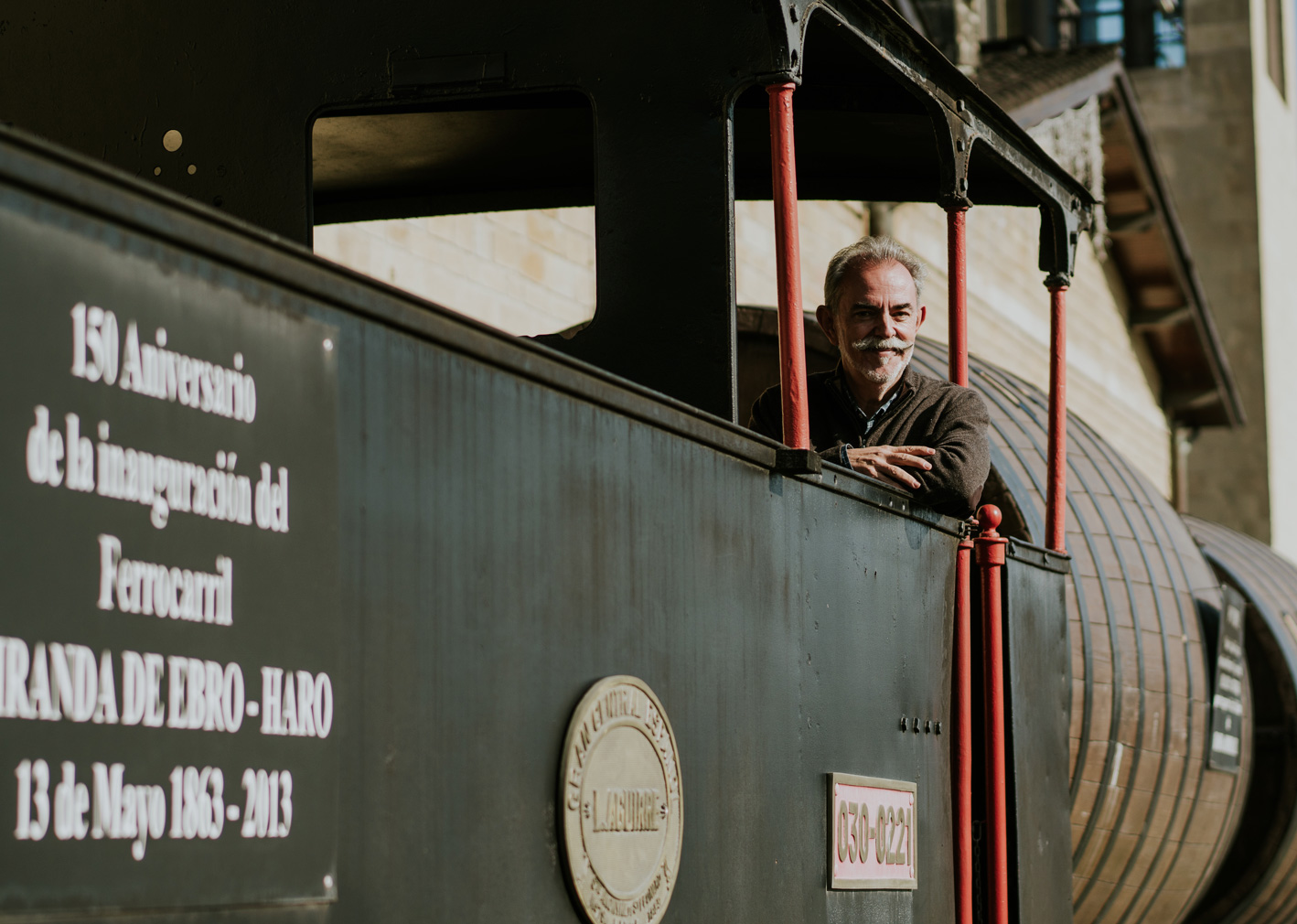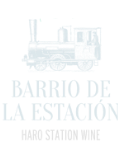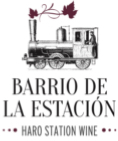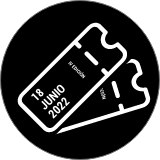Luis Gutiérrez (Ávila, 1965 vintage) was captured by wine almost three decades ago. His passion has become his life. And this hopeless love affair led him to becoming a wine critic for wines from Spain, Chile, Argentina and the Jura, in France, for Robert Parker’s journal, ‘The Wine Advocate’ (Michelin Group), for which he has been writing and tasting since 2013. He landed up there after co-founding and collaborating with El Mundo Vino and being the reporter on Spanish wines for the British writer, Jancis Robinson.
He speaks about wine, its landscapes and the people who make it possible, in a down-to-earth way, an approachability which can also be felt up close. A tireless taster and insatiable traveller, Luis Gutiérrez is the ‘Maquinista del Año’ (Engine Driver of the Year) of the Haro Station Wine Experience, and will lead a master tasting class on 14 June 2024 in Haro. His take? A “different and fun” musical tasting in which “with a bit of Rock&Wine, will be a journey through time over seven decades, with its memories of smell, sound and vision, setting the wines of the Barrio de la Estación in the historical context against which they were made”.
”"We have focused for too long on technical speeches. And that scares people. We have to tell human stories, stories of overcoming, of work, of effort, of culture, of landscape, of gastronomy".
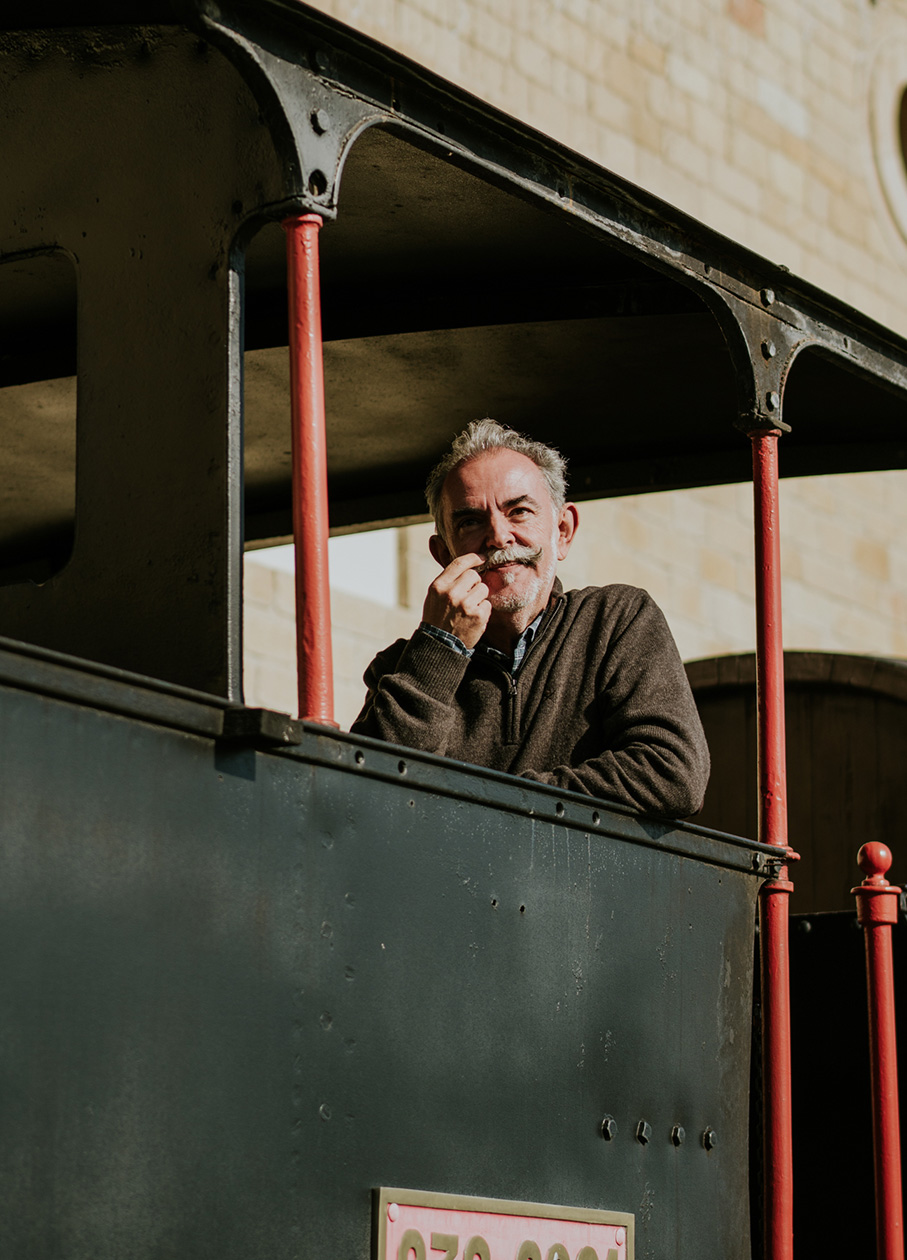
Robert Parker defines you as “a peeress authority, a passionate lover of the great wines of the world and a purist” … Can you identify yourself with this definition?
An authority, I don’t know, but passionate, definitely yes. I am here because I am crazy about wine. I adore wine. And wine has ended up taking over my whole life.
What does it mean for Luis Gutiérrez to be the engine driver for the Barrio de la Estación 2024 event and join the circle of ambassadors of the Station Quarter, together with the Masters of Wine Tim Atkin, Pedro Ballesteros and Sarah Jane Evans and the sommelier Josep Roca?
Above all, a challenge. I was with Pitu Roca not long ago and he showed me the presentation he made and it made me want to cry. It is a challenge, a matter of pride, a great satisfaction. I hope we can do something different and which is great fun.
You like to understand wines from their context. How would you define the unique character of the wines from the “Station Quarter”?
Wine is much more than just the liquid in a bottle. It is all the history and all the context, which can be from the vineyards, the landscape or the local culture. The “Station Quarter” is quite unique, perhaps it is more the social and economic aspect than the agricultural factor, but it was one of the things that marked the history of La Rioja. I have a great interest in history. And, when I drink old wines, I try to put myself in the context of what was happening, how the people lived, how they worked, how they made the wine. I am sure they didn’t have the same conditions as they have today or such magnificent wine cellars…
”"I'm going to try to do something about wine on television. There are a lot of cooking programmes, but they don't talk about wine. And for me, cooking without wine is not gastronomy".
“The past is the future”. This is one of your most-quoted phrases, from your book ‘Los nuevos viñadores’. It was in this enclave of the Barrio de la Estación that the fine Rioja wines of the end of the 19th century were conceived. Where does the beauty, which these almost eternal wines continue to offer, lie?
One of wine’s great secrets and one of the great luxuries in life, especially nowadays, is time. Time, which it was much easier to find in the past. They had much more room for trial and error. Hardly any of the bodegas had a financial director. They would be guided much more by intuition. And that’s why we mustn’t forget what all these people did, these pioneers. We should be able to interpret all that with the knowledge we have available now.
You regard yourself as a writer rather than a taster. What wines excite you? What are the features that define a great wine?
One of the most important things is for a wine to reflect what is on the label, because it is normally the name of a place, large or small, a vintage, some grapes. Then, since the wine has balance, that it is pleasant to drink. Then we can ask it to have longevity, we can ask it for many other things. For me, the great wines are the ones which strike at the heart so that it is much more of a sentiment than a succession of descriptors or aromas. For me, a wine which strikes at the heart.
The Michelin Guide focussed their debate before the presentation of the 2023 Michelin stars on the idea that “Wine is gastronomy” and the new paths for serving and enjoying wines in haute cuisine is through an emotional connection. What are your thoughts about this? Where are we heading with regard to the wine experience in restaurants?
I understand wine as an integral part of fine dining. I cannot imagine going to a restaurant and not drinking wine. And I cannot imagine eating at this level of quality and drinking like that. If I want to eat here, I want to drink here, or maybe here. I think this is what we should achieve in a natural ay, for people not to feel forced or intimidated. Often they feel intimidated by enormously long wine lists, they don’t know how to choose. People say to you, “I don’t drink wine because I don’t understand”. People eat meat and if we ask them about the meat, they wouldn’t be able to explain anything to you. We should make (enjoying wine in restaurants) something natural, simple and pleasurable.
You are a lover of the local cuisine, which you explore on your trips. How would you rate the gastronomy of the next edition of the Haro Station Wine Experience, with its offer of Michelin-star projects, like the celebration of the diversity and the exceptional moment currently being enjoyed for Riojan and Spanish cuisine?
It all fits perfectly for me. ‘The Wine Advocate’ is now part of the Michelin Group and it makes all the sense in the world. Uniting restaurants, food, with the wine, and also with the hotels. People want to travel, they want to enjoy themselves, they want to eat, they want to drink wine. It’s what they must do. We are looking for the best food, we are going to serve the best wines. I want to eat and drink at the same level, and if I can drink at a higher one, even better.
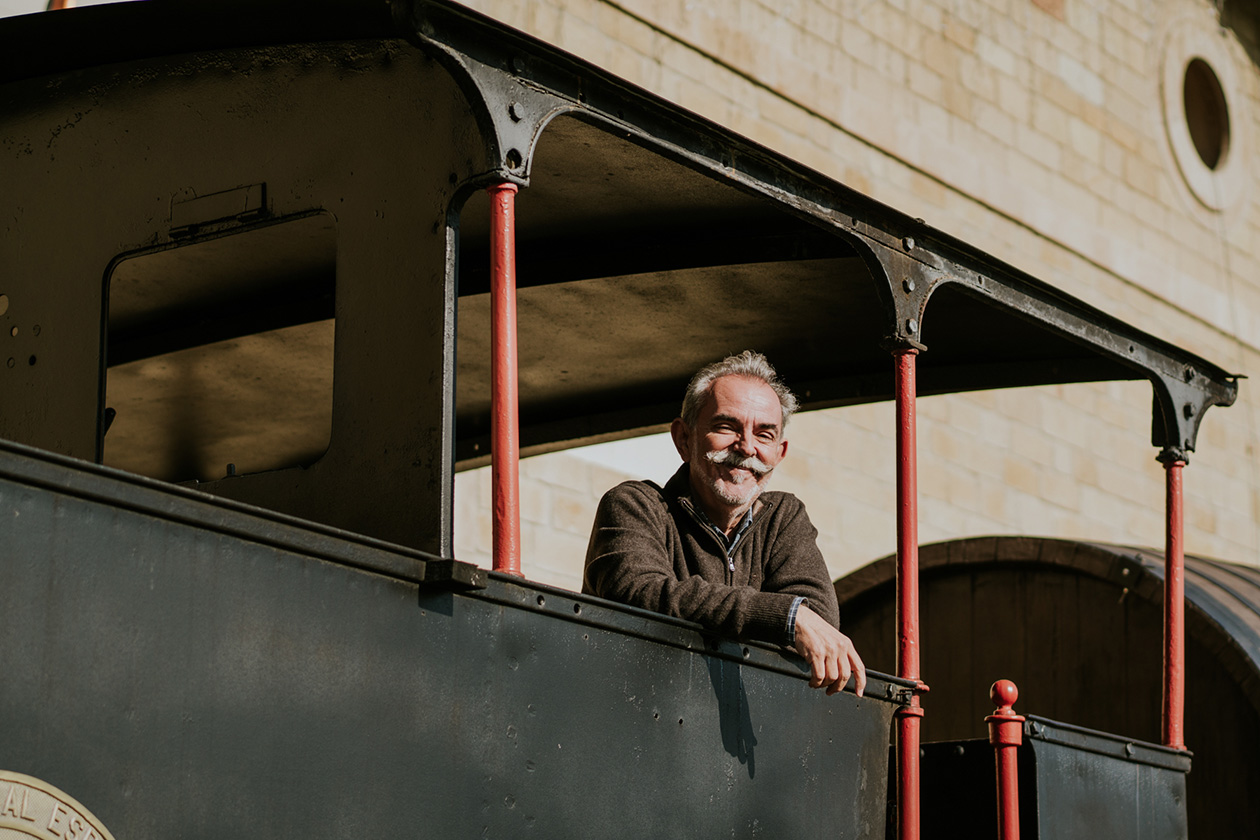
The Barrio de la Estación, the greatest concentration in the world of wineries over a hundred years’ old, is a popular wine tourism destination. What makes a territory a global benchmark wine tourism destination?
It must be differentiation, because, in the end, wine tourism can’t be just showing fermentation tanks and barrels, because all the wineries in the world have these. You have to find what makes the difference. And that takes you to your history, your roots, your singularity.
The reports on trends and consumer data have detected that people are drinking less wine, but of better quality. Will the progress in excellence in viticulture and oenology be consolidated?
At least in the segment of the great wines, totally. Quality is the way to go. In the past, wine and, in the case of Spain, maybe more because of our history, was part of feeding the people. It was subsistence, vitamins, minerals, elements. Then nobody talked about culture of leisure. Now we are in another, totally different setting. For me, in the wine segment we are talking about, quality is the way forward.
What are the stories that can help us to make our wines more attractive, to spread its culture and its virtues, particularly among the younger generations?
For a long time we have concentrated on technical matters, explaining technical things like how the wines are made. And this can frighten people, drive them away, intimidate them. You have to tell human stories, tell stories of overcoming obstacles, of hard work and effort, culture, landscapes, gastronomy. Things that anybody can understand. If you are going to talk about technical things, you are already preaching to the converted. You are going to be talking to people who already understand you, so you don’t need to convert them.
How can we manage to give wine the power of gastronomy to contribute even more, as it deserves, to the Spanish brand?
That is the million dollar question, the one we are all asking ourselves. What do we do to attract young people, to make all this something normal? Institutionally you can’t do much. Personally, I think I am going to try and do something about wine on television. In the end, television is a very powerful medium, which reaches a lot of people, and there are lots of food programmes but they don’t talk about wine. And for me, cooking, without wine, is not gastronomy.
You defend quality and differentiation at the main competitive advantages in the winemaking sector. What will the next trend in wine be, after years of praising the diversity of the grape varieties, the styles of wine, the profiles of the winemakers?
It is more about continuing on this path of differentiation, of the personality. In the end, if you are making a product which can be made anywhere in the world, you are going to be competing on price. The places, clearly, cannot be replicated. The weather conditions of the soil, the vegetation, of the whole surroundings of Rioja, cannot be found anywhere else in the world, so they can’t be copied. If you focus on selling a varietal wine, well that can be made in many places around the world. But the places are unique and cannot be repeated. I think that pursuing the character of the wines from each of these places, and combining them with the tradition, the local varieties, how the wine was made… is, for me, what is going to still be the trend. And more than just a trend, the way to go.
”"If there are no people who have that vision, that idea, and that ability to transfer the potential of the sites to the bottle, we are not going anywhere. For me, the last link in the chain is the producer".
”"Wine tourism cannot be about showing fermentation tanks and barrels, because all the wineries in the world have that. You have to look for differentiation. And that takes you back to your history, to your origins, to your roots, to your uniqueness".
Sustainability is undeniable. Wil we still be able to make great wines in Rioja and in Spain against a context of climate change?
The matter of climate change is something very serious, and which I fear we do not take seriously enough, and so is sustainability, in general, because we can’t destroy the planet. Very soon, following organic agriculture methods is going to be a requirement for quality wines. And I think people are going to become more and more aware. In the case of viticulture there are already tools for adapting to climate change. I don’t think it is going to be as extreme as you sometimes hear, such as having to go to Nordic countries to make wine…There are still enough tools, especially with regard to viticulture.
The DOCa. Rioja will be 100 years’ old in 2025. What will allow it to continue to be a global reference among the historic winemaking regions in the world?
I always say that the places have the potential. Rioja obviously does. We hadn’t realised it. Perhaps the French discovered it when the y came here in search of wine because of the outbreak of phylloxera. But in the end, you can have the potential but if there is nobody with the vision, with this idea, who have this ability to translate the potential of the places into the bottle, you won’t go anywhere. So, for me, the final link in the chain is the producer.
As a member of The Winedrinkers band, you plan to interpret the wines of the Barrio de la Estación via a journey through the history of music. Who would compose the score for your personal wine cellar?
Very eclectic, because I also like diversity. When we are young, we are a lot more closed, our tasted s are much narrower. And as we get older, we learn, they become wider. So I think and eclectic range of wines in my cellar, and with an eclectic collection of records as well.
How will you transmit your idea for the masterclass as ‘Maquinista del Año’ for the Barrio de la Estación tasting?
I am going to try and do something different and so that the people will have fun. I think the people want to enjoy themselves, the people must enjoy themselves. You have to realise that, when drinking wine, we can have fun. It can be combined with food, And it can be combined with music. Why not?
Your work at ‘The Wine Advocate’ is very thorough when preparing a trip to a region and to taste its wines, with over a year of research. What defines a wine critic these days when the number of influencers in the social media is growing? Do you fear the power to influence of artificial intelligence?
The secret is that there is no secret. Again, time. It’s experience, it’s training, it’s travelling, it’s trying lots of wines, it’s spending. You have to spend money to buy wines. It hurts your pocket whether you like it or not. It’s the only way to learn. Really, there are no short cuts. What I see, I think it is difficult for artificial intelligence to manage to see. A machine may be able to describe aromas, but in the end, giving you a shopping list to take to the fruit shop is not a lot of use. I believe there are much more interesting things to talk about with wines.
A final word…
We will see you at the Station. Let’s see if we can manage a bit of ’Rock&Wine’
Master class with Luis Gutiérrez
The writer and wine critic for Robert Parker’s publication ‘The Wine Advocate’, Luis Gutiérrez, will conduct a master tasting as ‘Maquinista del Año’ of La Cata del Barrio de la Estación in Haro on 14 June, the day before the great wine and food event promoted by the wineries of this historic enclave CVNE, Bodegas Bilbaínas – Viña Pomal, Gómez Cruzado, La Rioja Alta S.A., Muga and Bodegas RODA. Their proposal is a musical tasting “different and fun in which to do a bit of ‘Rock and Wine'”, travelling back in time to the 60s. The experience can be enjoyed by purchasing an exclusive ticket, which will also allow access to the subsequent cocktail party harmonised with different wines from the wineries CVNE, Bodegas Bilbaínas-Viña Pomal, Gómez Cruzado, La Rioja Alta S.A., Muga and Bodegas RODA.
